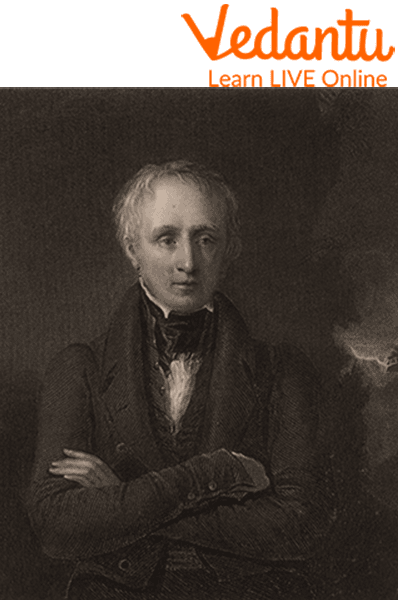Overview of Goodbye Poem
Hey kids, do you feel anxious when you have to wave goodbye to your friends? Feeling anxious is a normal deal; even adults feel the same when leaving. But it is essential to let people leave with a smiling goodbye kiss and wave because it makes their journey peaceful and enjoyable.
In this article, we will read some goodbye poems in English, and through these poems, you will learn how to say goodbye nicely. We will also read some rhyming poems for kids in this article. So, without wasting any moment, let's dive into the article!
Goodbye Poem for Kids: A Farewell by William Wordsworth
Thou rocky corner in the lowest stair
Of that magnificent temple which doth bound
One side of our whole vale with grandeur rare;
Sweet garden-orchard, eminently fair,
The loveliest spot that man hath ever found,
Farewell!--we leave thee to Heaven's peaceful care,
Thee, and the Cottage which thou dost surround.
Our boat is safely anchored by the shore,
And there will safely ride when we are gone;
The flowering shrubs that deck our humble door
Will prosper, though untended and alone:
Fields, goods, and far-off chattels we have none:
These narrow bounds contain our private store
Of things earth makes, and sun doth shine upon;
Here are they in our sight--we have no more.

A Farewell by William Wordsworth
Sunshine and shower be with you, bud and bell!
For two months now in vain we shall be sought:
We leave you here in solitude to dwell
With these our latest gifts of tender thought;
Thou, like the morning, in thy saffron coat,
Bright gowan, and marsh-marigold, farewell!
Whom from the borders of the Lake we brought,
And placed together near our rocky Well.
We go for One to whom ye will be dear;
And she will prize this Bower, this Indian shed,
Our own contrivance, Building without peer!
--A gentle Maid, whose heart is lowly bred,
Whose pleasures are in wild fields gathered,
With joyousness, and with a thoughtful cheer,
Will come to you; to you herself will wed;
And love the blessed life that we lead here.
Dear Spot! which we have watched with tender heed,
Bringing thee chosen plants and blossoms blown
Among the distant mountains, flower and weed,
Which thou hast taken to thee as thy own,
Making all kindness registered and known;
Thou for our sakes, though Nature's child indeed,
Fair in thyself and beautiful alone,
Hast taken gifts which thou dost little need.
And O most constant, yet most fickle Place,
Thou hast thy wayward moods, as thou dost show
To them who look not daily on thy face;
Who, being loved, in love no bounds dost know,
And say'st, when we forsake thee, 'Let them go!'
Thou easy-hearted Thing, with thy wild race
Of weeds and flowers, till we return be slow,
And travel with the year at a soft pace
Help us to tell Her tales of years gone by,
And this sweet spring, the best beloved and best;
Joy will be flown in its mortality;
Something must stay to tell us of the rest.
Here, thronged with primroses, the steep rock's breast
Glittered at evening like a starry sky;
And in this bush our sparrow built her nest,
Of which I sang one song that will not die.
O happy Garden! whose seclusion deep
Hath been so friendly to industrious hours;
And to soft slumbers, that did gently steep
Our spirits, carrying with them dreams of flowers,
And wild notes warbled among leafy bowers;
Two burning months let summer overleap,
And, coming back with Her who will be ours,
Into thy bosom we again shall creep.
Theme and Meaning of the Poem
The rhyme scene of this poem is ababbaba. In the opening word of the poem, A Farewell by William Wordsworth, the poet is saying goodbye to a little nook (a part of the mountain). The next three have the description of a corner, which is rocky below on one side of a mountain, which the poet calls the magnificent temple.
The poet is giving a rocky corner a religious feel. He addresses material things like boas, shrubs, and cottages. He says that things will be alright when they are gone.
The poet is leaving the garden for a few months. That is why the poet is trying to personify it. The poem concentrates on the bond between the poet and his garden. In a way, he is trying to focus on the bond between nature and mankind. The poet says that the garden also has its moods; he is referring to the weather here. The poet also loves to sit in the garden and write here.

William Wordsworth
Summary
Through this poem: A Farewell by William Wordsworth, the poet is personifying the garden. He is telling how the garden became a friend to him, and now he even recognizes his moods, that is the weather. The poet is sad because he is going to meet someone, and he will come back after two months. Until then, he will miss his garden.
In this article, we saw a beautiful bond between nature and humans. We learnt to embrace nature through this goodbye poem in English. The main point in this poem is the beauty and inspiration of nature, and the poet is embracing that.


FAQs on Goodbye Poem for Kids
1. What are the other poems written by William Wordsworth?
The Prelude, I Wandered Lonely as a Cloud, etc. are a few other poems written by William Wordsworth.
2. Give two full rhymes and two slant rhymes from the poem.
Two full rhymes - ground-bound, shore-door
Slant rhymes - gone-alone, gathered-wed
3. What is the metre used in the poem?
The metre used in the poem is Iambic Pentameter.





